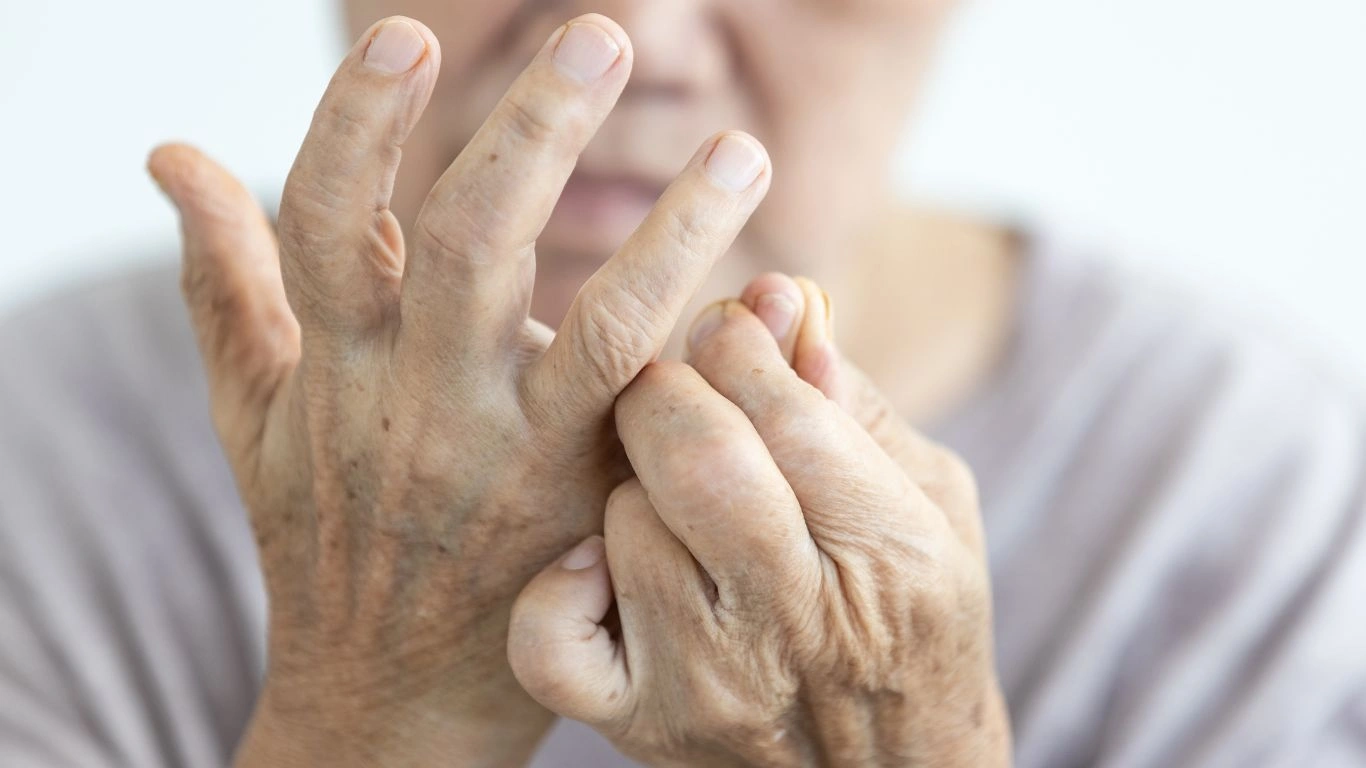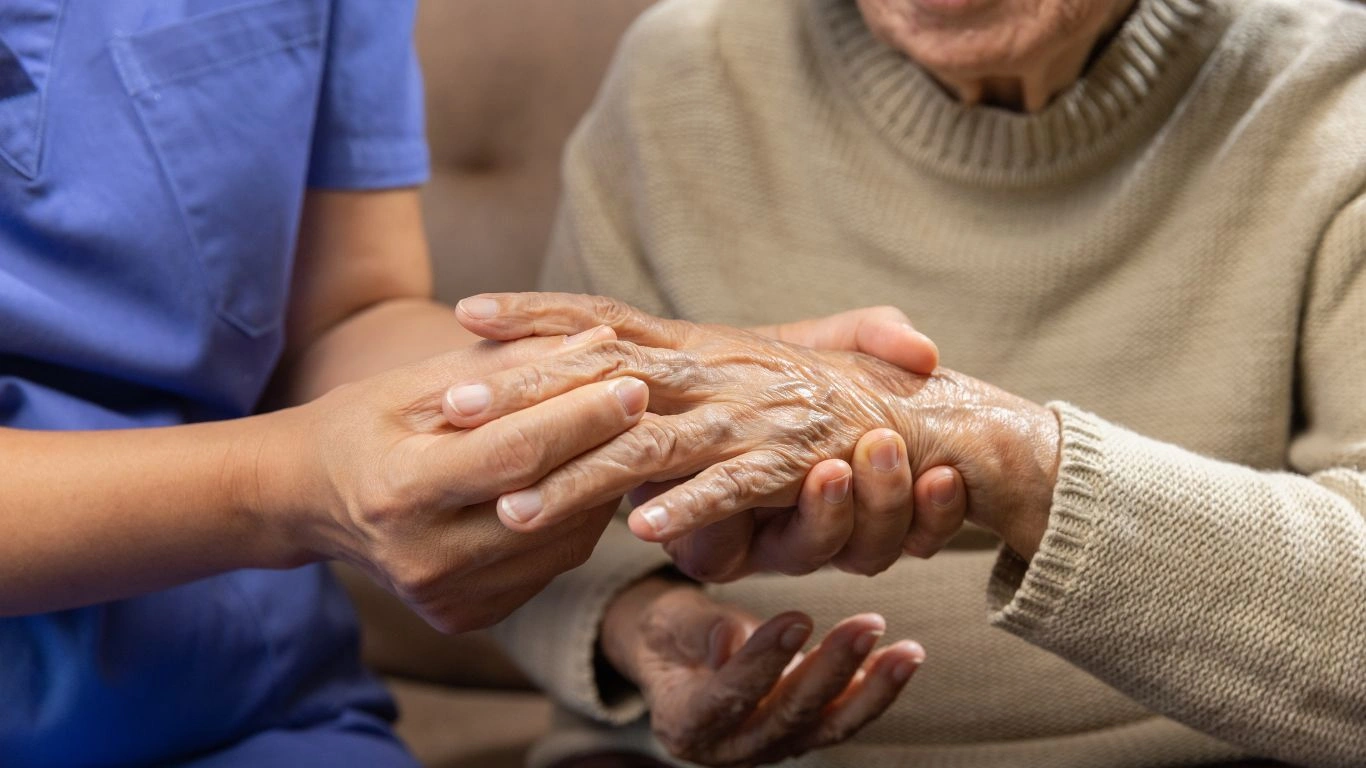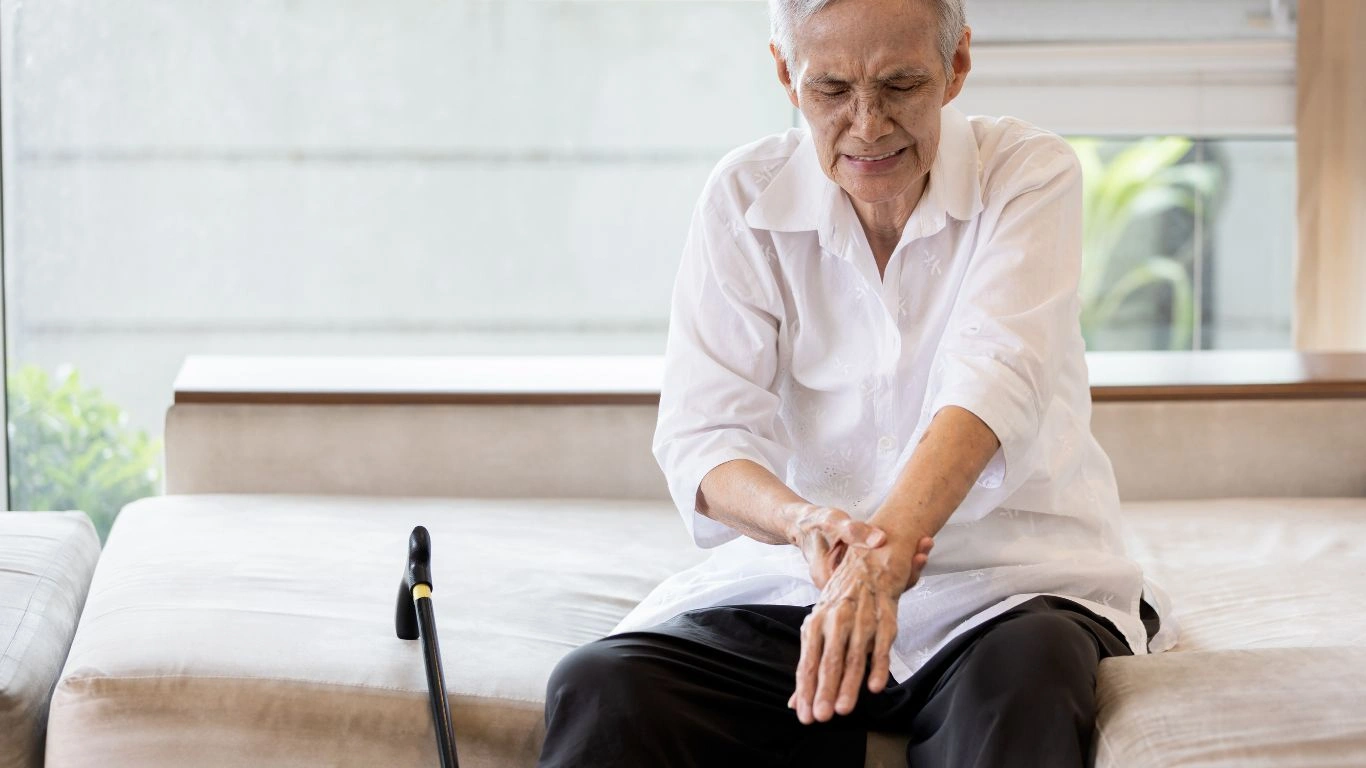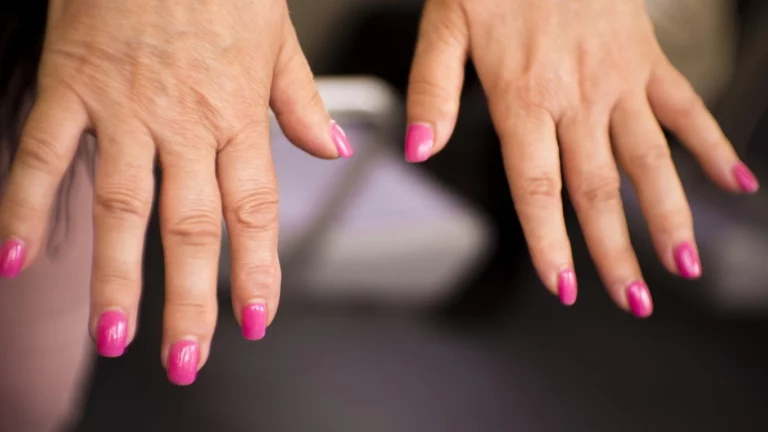How to Overcome the Emotional Toll of Living with Rheumatoid Arthritis
Living with rheumatoid arthritis (RA) is much more than just dealing with physical pain and discomfort. The emotional toll of living with rheumatoid arthritis can be profound, affecting everything from mental well-being to relationships and daily life. As someone who specializes in diagnosing, treating, and managing RA, I’ve seen firsthand how this disease touches every aspect of a person’s life, often in ways that go unnoticed. For many of my patients, the emotional struggle is just as challenging—if not more so—than the physical one. RA doesn’t just leave you with sore joints; it can also bring a heavy emotional burden that impacts mental health, self-esteem, and the ability to enjoy life to the fullest. It’s something that’s deeply personal to me as well, and I feel it’s time we shed some light on this often-overlooked aspect of living with RA.
The Emotional Rollercoaster of Rheumatoid Arthritis
When you’re diagnosed with rheumatoid arthritis, your life can change overnight. And I don’t mean just the physical side effects. Sure, the constant pain, stiffness, and fatigue can be overwhelming, but the emotional toll is something that truly deserves more attention. Whether you’re newly diagnosed or have been living with the condition for years, the emotional rollercoaster can feel like a never-ending ride. For many of us, it’s not just about surviving; it’s about finding ways to cope and thrive despite the challenges RA presents.

Facing the Fear of the Unknown
One of the most emotional aspects of living with rheumatoid arthritis is the fear of the unknown. I can’t tell you how many of my patients—myself included—have struggled with the constant uncertainty. It’s a disease that can flare up unpredictably, leaving you wondering, “Will I be able to walk tomorrow?” or “Will this pain ever go away?” The anxiety of not knowing what’s coming next can be exhausting.
Personally, I’ve found that when you live with RA, there’s a constant mental battle. It’s not just about managing the physical symptoms but also learning to cope with the emotional strain of never quite knowing how your body will feel day to day. Some days are easier than others, but even on the good days, there’s that underlying anxiety that comes with the territory. And let’s not even talk about the emotional stress that comes with trying to explain to others why you’re not feeling “better” yet. It’s hard to convey the invisible nature of the disease, which leads to feelings of isolation and frustration.
The Impact on Mental Health
The emotional toll of living with rheumatoid arthritis isn’t just about fear or uncertainty. It also comes with an increased risk of mental health struggles. Research has shown that individuals with RA are more likely to experience anxiety and depression. And it makes sense when you think about it. Chronic pain, fatigue, and the inability to engage in normal activities can lead to feelings of sadness and hopelessness.
As someone who has worked with many RA patients, I can tell you that mental health support is just as important as physical health support. Unfortunately, mental health is often overlooked in the treatment plan for RA. Many people don’t realize the connection between physical pain and emotional well-being. If you’re always in pain or never know how you’re going to feel tomorrow, it’s easy to slip into a mental health crisis. And that’s why it’s so crucial to address both the physical and emotional aspects of the condition.

Loss of Identity and Self-Esteem
Another aspect of the emotional toll of living with rheumatoid arthritis that can be incredibly tough is the loss of identity. Many of my patients, especially those who were once very active, struggle with this. RA can limit your ability to do the things you love, from sports and hobbies to even simple tasks like cooking or walking your dog. When that happens, it can feel like you’re losing a part of who you are. Suddenly, you may find yourself asking, “Who am I if I can’t do the things that used to define me?”
It’s something that many people with RA experience, and it can deeply affect your sense of self-worth. I’ve worked with countless patients who feel frustrated and defeated when they’re unable to keep up with the pace of life they once enjoyed. The physical limitations can cause an emotional spiral that makes it difficult to find joy in the things you used to love. But I always tell my patients that while RA changes your life, it doesn’t have to define it. Your identity isn’t just about what you can or can’t do—it’s about who you are at the core. And with the right mindset and support, you can find ways to rediscover yourself, even with RA in the picture.
Social Isolation
Social isolation is another hidden emotional toll of RA. It’s not just about missing out on events or not being able to do what you used to—it’s also about the internalized guilt that comes with it. Many of my patients find themselves pulling away from friends and family because they feel like a burden. They don’t want to be a “downer,” or they fear being judged for not being able to keep up with social activities. This leads to withdrawal, which only exacerbates feelings of loneliness and isolation.
Personally, I’ve seen how this isolation can spiral into depression and anxiety. When you feel like you’re constantly canceling plans or making excuses for not participating in social gatherings, it’s easy to feel like you’re missing out on life. And the worst part is that sometimes it feels like no one really understands what you’re going through, because the pain and fatigue are invisible. But I encourage all my patients to keep reaching out for support and to remember that your loved ones care about you, even when you can’t always show up the way you used to.

Finding Coping Mechanisms: Embracing Change
Despite the emotional toll, it’s important to remember that it’s possible to find ways to cope and thrive while living with RA. In my experience, one of the most powerful tools in managing RA—emotionally and physically—is a mindset shift. Embracing the changes that come with RA doesn’t mean giving up—it means learning how to adapt and work with your body, rather than against it. Over the years, I’ve seen so many patients find ways to adapt their lives in meaningful ways, from adjusting their daily routines to finding new hobbies that work with their limitations. RA doesn’t define your happiness, but how you respond to it can.
Support Systems: Finding Strength in Others
Living with rheumatoid arthritis doesn’t have to be a journey you walk alone. One of the most important aspects of coping with the emotional toll is building a solid support system. When you’re battling the physical challenges of RA, it’s easy to get bogged down by the emotional strain, but having a network of people who understand can make a world of difference. And trust me, it’s not just about having people around; it’s about having the *right* people who genuinely care and are willing to walk with you, even through the toughest days.
In my practice, I’ve seen how crucial it is to have supportive friends, family, and, when needed, healthcare professionals who take the time to understand the emotional aspects of the disease. But not everyone in your circle may fully grasp what you’re going through, and that’s okay. One thing I always emphasize to my patients is that it’s important to communicate your needs clearly. You don’t have to carry the weight of RA on your shoulders alone, and people who care about you *want* to help—they just need to know how.

Seeking Professional Help
While family and friends are vital, sometimes the emotional burden can be so overwhelming that you need additional help. For many of my patients, therapy or counseling has been an essential tool in managing the emotional toll of RA. As a doctor, I always encourage my patients to explore mental health support, especially if they are struggling with depression or anxiety due to their condition. RA can feel like a never-ending battle, and it’s easy to get lost in the mental fog. A professional therapist can help you navigate your emotions, manage stress, and develop healthier coping mechanisms.
Over the years, I’ve worked with a few incredible therapists who specialize in chronic illness, and I’ve seen firsthand how life-changing this kind of support can be. It’s a safe space where you can vent, cry, or just talk about the frustrations that come with RA without feeling like a burden. Therapy can also help you reframe your mindset—something that can be a game-changer when it comes to managing the emotional side of RA. Because, at the end of the day, managing RA isn’t just about controlling inflammation or pain; it’s about having the mental clarity to continue pushing forward, despite the challenges.
Physical Activity and Its Role in Emotional Health
When you’re dealing with a condition like rheumatoid arthritis, exercise might be the last thing on your mind. But here’s the thing: physical activity can actually play a huge role in improving emotional health. And no, I’m not talking about running marathons or hitting the gym for hours on end. I’m talking about small, consistent movements that help get your body moving and, more importantly, release those feel-good endorphins that can lift your mood.
As someone who has seen many patients struggle with joint pain, I can say that finding the right form of exercise is absolutely crucial. Low-impact activities like swimming, yoga, or even walking can be incredibly beneficial for RA patients. I’ve seen patients who were once too fatigued or in too much pain to move, slowly begin to experience emotional relief after just a few weeks of consistent, gentle movement. It’s not about pushing yourself beyond your limits; it’s about finding a way to move that respects your body’s current state while still allowing you to reap the emotional benefits.

The Mind-Body Connection
The mind-body connection is something I emphasize often in my practice. When RA flares up, it’s easy to feel completely defeated, both physically and emotionally. However, I’ve seen how a holistic approach, which includes both physical activity and mindfulness practices, can significantly improve how you feel mentally. Practices like meditation, deep breathing, and mindfulness not only reduce stress but also help you connect with your body in a more positive way.
Personally, I’ve found mindfulness to be incredibly helpful when it comes to managing the emotional aspects of living with RA. Being present and mindful allows me to acknowledge my pain without letting it consume me. It’s like training your brain to acknowledge your symptoms without giving them power over your emotions. Many of my patients who’ve incorporated mindfulness or relaxation techniques have reported feeling more in control of their emotional well-being, even on the most difficult days.
Nutrition and Mental Health: What’s the Connection?
We all know that nutrition plays a big role in managing rheumatoid arthritis symptoms, but did you know that the food you eat can also have a significant impact on your emotional health? In my experience, nutrition is often an overlooked aspect of emotional well-being. There are certain foods that can actually help reduce inflammation and promote brain health, which is crucial when dealing with the emotional toll of chronic illness.
Omega-3 fatty acids, found in fish like salmon, as well as nuts and seeds, have anti-inflammatory properties that can help reduce the physical symptoms of RA and, interestingly, may also improve mood and reduce symptoms of depression. Likewise, a diet rich in antioxidants—think colorful fruits and vegetables—can help combat oxidative stress, which has been linked to depression and anxiety.
But here’s the thing: It’s not just about the “superfoods.” For me, a huge part of managing the emotional toll of RA is making sure that food is something you enjoy. Too often, when people are trying to manage their health, they feel restricted or overwhelmed by what they can or can’t eat. I always encourage my patients to find a balance—eat foods that nourish both your body *and* your soul. Whether it’s a bowl of comforting soup, a favorite dish shared with family, or even a treat that brings you joy, making time for food that uplifts you emotionally is just as important as the nutritional value it provides.

Mindful Eating
Mindful eating is another practice that has been shown to improve both physical and emotional health. It’s all about slowing down, savoring each bite, and being present during meals. When you’re living with RA, eating can sometimes feel like a rushed or even stressful activity, especially when you’re trying to manage symptoms and your busy schedule. But taking the time to truly enjoy your food, without distractions, can help create a positive experience around something that’s essential to your well-being.
Mindful eating can also be a great way to reconnect with your body, especially when it comes to understanding what foods make you feel better or worse. For some people with RA, certain foods can trigger flare-ups, while others can offer relief. Listening to your body and making choices that serve both your physical and emotional needs is a key part of managing the emotional toll of living with rheumatoid arthritis.
Case Studies & Real-Life Examples
Sometimes, the best way to understand the emotional toll of rheumatoid arthritis is through real stories—stories from people who’ve been in the trenches. As a professional who’s spent years treating RA patients, I’ve had the privilege of witnessing numerous journeys, each one unique but shared in its struggle. Let me take you through a couple of examples of patients I’ve worked with, to give you a glimpse into the emotional journey that RA can bring.
One patient, Sarah, was a passionate runner before her diagnosis. She had always been the energetic type, someone who lived for long runs and races, and felt deeply connected to her fitness. When Sarah first started experiencing joint pain, she thought it was just temporary. But as the pain worsened, she was diagnosed with rheumatoid arthritis, and everything changed. For months, Sarah struggled not just with the physical pain, but with the overwhelming sense of loss. Running wasn’t just a hobby for her; it was part of her identity. The idea of never running again was heartbreaking.
Sarah’s journey was about more than just learning to live with physical pain; it was about mourning the things she thought she had lost. But over time, Sarah embraced a new form of movement. With the help of a physical therapist, she transitioned from running to swimming, which is much gentler on the joints. Sarah’s story is one of adaptation. She didn’t give up on her love of movement; she found a way to adjust and discover new passions that worked for her. While she still mourns the loss of running, she’s learned to celebrate the physical activities she can do, which has been a huge emotional win for her.

Another example is Mark, a man in his early 40s who was diagnosed with RA about five years ago. Mark had always been a busy professional, working long hours in a demanding job. He didn’t have much time for self-care, and the thought of slowing down was hard to accept. But as RA progressed, Mark found himself unable to keep up with the demands of his career. This caused a lot of anxiety and even depression, as he was worried about his ability to maintain his job and take care of his family.
For Mark, the turning point came when he realized that his emotional health was just as important as his physical health. He reached out to a counselor, and together, they worked through the emotional complexities of living with a chronic illness. Through therapy, Mark developed strategies to cope with stress and found ways to manage his workload without overwhelming himself. He also learned how to set boundaries—something that was difficult for him, but essential. Today, Mark is in a much better place emotionally, having learned to balance his career, health, and personal life in a healthier way.
These real-life examples show the emotional ups and downs that RA patients face, and how with the right support, coping strategies, and mindset shifts, it’s possible to find a new sense of balance and fulfillment. While the emotional toll of RA can feel insurmountable at times, these stories highlight the power of resilience and the importance of seeking help when needed.
Key Takeaways: What You Need to Remember
As we’ve explored, the emotional toll of living with rheumatoid arthritis is often just as challenging as the physical symptoms. But there’s hope, and there are practical ways to manage the emotional side of RA. Here are the key takeaways you should remember:
- Don’t underestimate the emotional impact: Chronic illnesses like RA can cause significant emotional distress, including anxiety, depression, and feelings of isolation. Acknowledging this is the first step to getting the help you need.
- Build a strong support system: Whether it’s family, friends, or professional help, having a support system is crucial. Don’t be afraid to reach out for help, whether it’s through therapy, support groups, or leaning on loved ones.
- Focus on holistic care: Managing RA emotionally is just as important as managing it physically. Make sure to focus on both aspects by incorporating activities that reduce stress, like mindfulness, gentle exercise, and proper nutrition.
- Adapting is key: RA may change the way you live, but it doesn’t have to take away your joy or sense of identity. Embrace change and find new ways to stay active, enjoy hobbies, and care for your mental health.
- Small victories matter: Take time to celebrate the little wins—whether it’s a new activity you’ve discovered or just getting through a tough day. These moments matter and will keep you going through the difficult times.
FAQs
1. How can I manage the emotional toll of living with RA?
Managing the emotional toll of RA involves building a solid support system, seeking professional mental health support, and incorporating activities that reduce stress, like meditation or gentle exercise. It’s important to address both physical and emotional well-being together for a holistic approach to care.
2. Can rheumatoid arthritis lead to depression?
Yes, it’s common for individuals with RA to experience depression, especially when chronic pain, fatigue, and the uncertainty of flare-ups affect daily life. Seeking therapy and learning coping strategies are essential to managing these emotions.
3. How can I explain RA to my loved ones?
It can be tough to explain RA’s emotional toll to people who don’t have it. Be open and honest about your experience, and share how RA affects you both physically and emotionally. You might even consider educating your loved ones about the disease so they can better understand what you’re going through.
Bonus: Additional Resources or DIY Tips
If you’re looking for more ways to support your emotional well-being while managing rheumatoid arthritis, here are some DIY tips and additional resources that could help:
- Mindfulness Meditation Apps: Apps like Calm, Headspace, and Insight Timer offer guided meditation and mindfulness exercises that can help reduce stress and improve emotional health.
- Low-Impact Exercise Classes: Look for local or online classes for activities like swimming, yoga, or pilates that are designed for people with chronic pain or arthritis.
- Support Groups: Online and in-person RA support groups can provide a sense of community and help you connect with others who truly understand what you’re going through.
- Books on Living with RA: Consider reading books such as *“The Arthritis Foundation’s Guide to Good Living with RA”* or *“Living with Rheumatoid Arthritis”* for more practical tips on managing both the physical and emotional aspects of RA.
Appendix: Table, References, Disclaimer, and Call to Action
References:
- Arthritis Foundation – Comprehensive resources on living with RA
- Mayo Clinic – RA Overview – Trusted medical advice
Disclaimer: This article is for informational purposes only and is not intended to replace professional medical advice. Always consult with a healthcare provider before making any changes to your health routine.
Call to Action: If you or someone you love is living with rheumatoid arthritis, remember that you’re not alone. Reach out to healthcare professionals, join a support group, and don’t be afraid to ask for help. RA is a challenging condition, but with the right support, resources, and mindset, you can manage both the physical and emotional aspects and continue living a fulfilling life.

Tarra Nugroho is a dedicated Nurse Practitioner with a strong foundation in family and preventive care. She brings both compassion and clinical expertise to her practice, focusing on patient-centered care and health education. As a contributor to Healthusias.com, Tarra translates medical knowledge into clear, empowering articles on topics like women’s health, chronic disease management, and lifestyle medicine. Her mission is simple: help people feel seen, heard, and informed—both in the clinic and through the content she creates. When she’s not caring for patients, Tarra enjoys weekend hikes, plant-based cooking, and curling up with a good health podcast.






